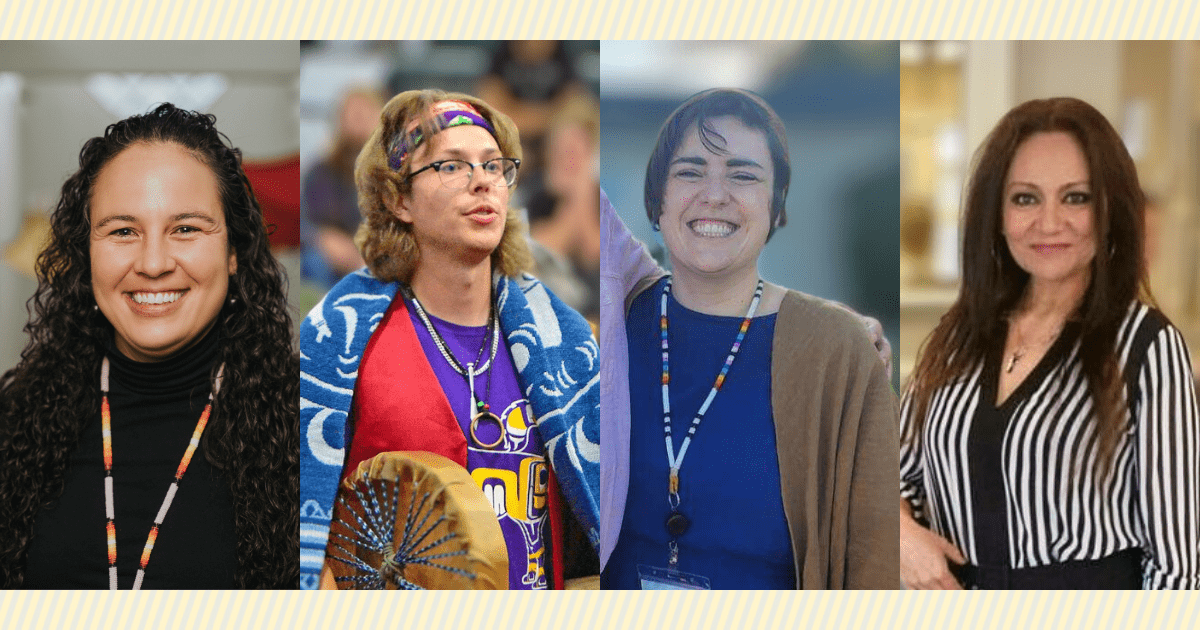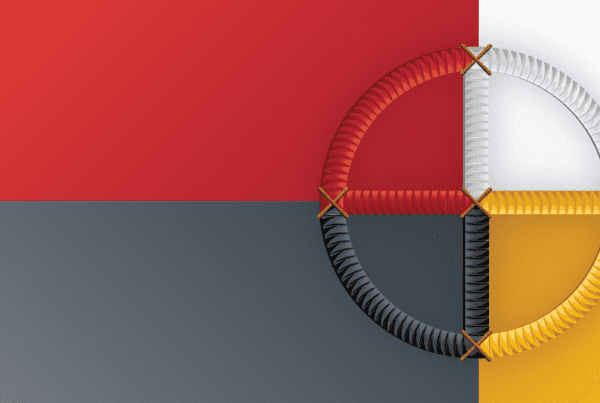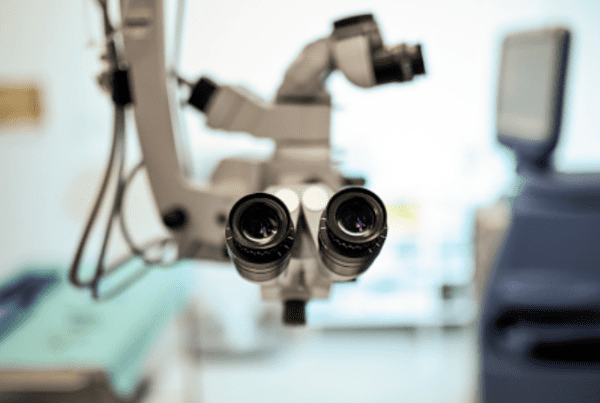During Native American Heritage Month, we celebrate the contributions of our staff, faculty, trainees and students from American Indian and Alaska Native communities. Below, Indigenous colleagues share their cultures, traditions and their unique connections to healthcare at UW Medicine. Join us in honoring their stories, experiences and invaluable perspectives they bring to the UW Medicine community.
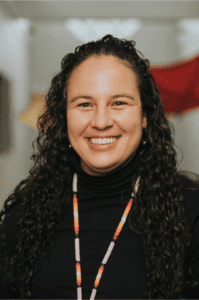
Shaquita Bell
Shaquita Bell, MD, Clinical Professor of Pediatrics, UW School of Medicine and Pediatrician, Harborview Medical Center
Tribal affiliation: Cherokee
“My heritage and where I come from mean everything to me. They have shaped my life in countless ways and certainly continue to be my source for meaningful connection to who I am as a person. One of my favorite traditions is our ‘Indigi food week.’ Every November, a group of us commits to eating only pre-contact foods. We share recipes, think deeply about where our food comes from, and learn about the plant and animal history on Turtle Island. It is a uniquely grounding and fun celebration of the many things that make us Native peoples.
As with many Indigenous groups, I was raised to consider the ‘we’ over the ‘me.’ Meaning that my actions are for the benefit of all, that I should consider how to make the community better and how to take care of our elders and children. I do think that played heavily in my decision to enter medicine. Healing and helping folks are wonderful things to be able to provide. It also made it hard to train in the traditional western medicine approach. Sometimes our clinical pathways and even the way we teach medicine can limit our ability to see more traditional ways to health. It is a good reminder for me, even this far into my career and especially as a leader, to keep the patient and family at the center of any decision.
For me, this time of year is an opportunity for people to see Native and Indigenous people. We are everywhere and continue to be stewards of the land, water, air and more. What would it look like to have a meaningful connection to the tribes in your area? Shop at the annual Duwamish Native Arts and Crafts Market, shop the Tulalip Native Art Bazaar, donate to the Seattle Indian Health Board, support the Cowlitz Indian Tribe’s Pathways to Healing program or read more about how to advocate for Puyallup Tribal protection of water ways. These are simple ways that you too can connect.”
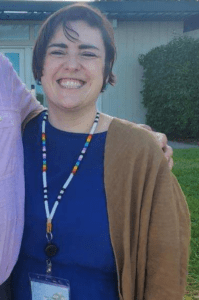
Jenny Tiskus
Jenny Tiskus, MD, Family Medicine Resident, Second Year, UW Medicine Primary Care at Northgate
Tribal affiliation: Little Shell Chippewa and Métis
“We are all connected — our bodies, our lives, our health, the natural world. We hear so much about the ways violence against Indigenous people — historical, structural and ongoing — is written on our bodies, like how the life expectancy for an Indigenous person in the United States is currently 65. I am so grateful to have been raised to understand that living beautifully as a Little Shell is a radical act of defiance and survival.
Western medicine sometimes breaks us down into individual patients, organ systems, problem lists. I feel resonance with Family Medicine because our health can only exist in the contexts of our ancestors, our communities, our environment and our self-respect, despite barriers to these shared rights. Sometimes I am surprised that the things that make me feel the best — moving my body outside, connection to loved ones and community, animals, nature, good food — aren’t often emphasized in allopathic medical training. I’m excited to challenge that!
I’m sharing a picture of me at the Association of American Indigenous Physicians induction ceremony this year. Dr. Benally Thompson, White Earth Ojibwe, sponsored me – what an honor! It was taken by Associate Program Director for DEI (Diversity, Equity, and Inclusion) Dr. Joseph Nelson of the Yakima Nation, my mentor at UW Medicine.”
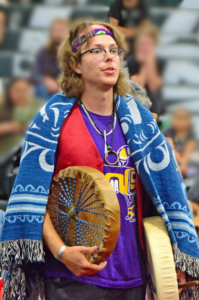
Kuwlkadim Jared Edge
Kuwlkadim Jared Edge, Program Operations Specialist, UW Medicine Center for Indigenous Health
Tribal affiliation: Coast Salish
“I’ve always been proud to be someone of Coast Salish heritage especially since my family continues to live in Washington state and practice our customs and culture. My family enjoys participating in the Canoe Journey due to the community building and practice of canoe culture that our people have revitalized. It helps connect our current Coast Salish and Indigenous cultures with the ancestral highways that were once exclusively used. Another cultural event I enjoy participating in is the Salmon Ceremony, which marks the start of the Salmon harvest. This cultural practice shows a continuation of culture and a display of sovereignty and tribal fishing rights being upheld.
My heritage directly influenced my decision to work in healthcare. I never thought of myself as someone who might work in healthcare but when the opportunity arose to come and support the Native American and Indigenous community, I knew it could be a place for me. My role at the Center for Indigenous Health allows me to directly build connections with tribal communities, support tribal students, and help create programs to increase the number of Native American and Indigenous professionals in healthcare.
We continue to live and thrive today, and we have not disappeared like some may believe. Please support local Native American tribes and organizations so together we can continue to build a better future for the next seven generations.”
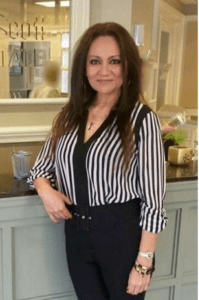
Shirley Nollette
Shirley Nollette, Academic Human Resources Manager, Department of Bioengineering, UW School of Medicine
Tribal affiliation: Navajo Nation (Diné)
“Yá’át’ééh (Hello!), I take pride in being Navajo (Diné). Introducing myself through my clans, I belong to the Tábaahá (Water Edge Clan) through my mother, born for the Naakai Diné (Spanish Clan) of my father. My maternal grandfather’s clan is Deeshchii’nii (Start at the Red Streak People), and my paternal grandfather’s clan is also Naakai Diné (Spanish Clan).
As a Diné woman with a rich cultural heritage, my identity is deeply intertwined with the traditions, beliefs and values of the Diné people. My Native American heritage is a source of strength, resilience and a profound connection to my community, history and the land. Being Diné means having a strong connection to ancestral wisdom that has been passed down through generations. I find pride and a sense of cultural identity in celebrating the language, art, music and values that define my community.
One of my favorite aspects of my cultural heritage is the tradition of Navajo (Diné) rug weaving. The intricate designs and patterns of the rugs carry deep symbolism and cultural significance. Storytelling within the Diné community is another cherished tradition. I value the lessons, cultural history and values that are shared through these stories. I also enjoy participating in ceremonies like the Kinaaldá (a female puberty ceremony). Healing ceremonies hold immense cultural importance for me, providing deep spiritual and communal significance within my life and a profound connection to my roots through them.
My cultural heritage strongly influenced my choice to work in higher education. The emphasis on education within the Navajo community, the value of K’é (kinship), the oral tradition, and the challenges faced by Indigenous communities in accessing higher education have all shaped my career path. Hózhó, a fundamental concept in Navajo philosophy, encapsulates beauty, harmony, and balance [as part of] the physical, mental and spiritual well-being of the Diné people. It extends beyond superficial beauty, emphasizing interconnectedness with nature and others. Its significance lies in aligning with Diné beliefs, maintaining community balance and making choices that honor this equilibrium in all aspects of life.
To honor Native American cultures, people can embrace traditions, respect diversity and integrate cultural values into daily practices. This involves acknowledging and supporting Indigenous perspectives, fostering inclusivity and celebrating the richness of Native American heritage. With this, I can envision a better world and future ahead. Ahéhee’ (I am grateful!).”
Editor’s note: Thank you to the UW Medicine employees who have taken the time to share their culture and traditions. Each year, managers are asked to nominate Indigenous self-identified employees to participate in sharing their experience with the broader UW Medicine community.
Note: The Seventh Generation Principle is an Indigenous philosophy that the decisions we make today should result in a sustainable world seven generations into the future.
Any information or opinions shared in this article are personal views and do not represent those of the University of Washington or UW Medicine in any way, shape, or form.
